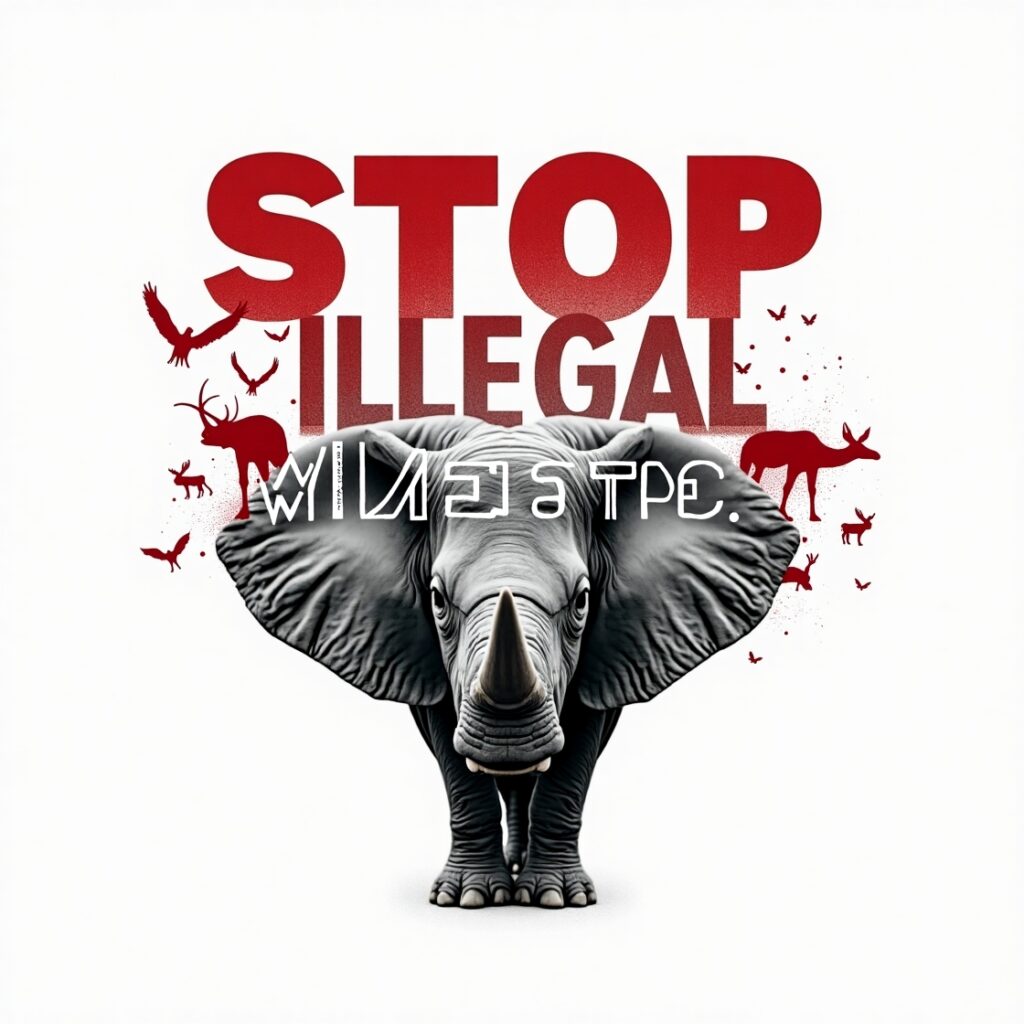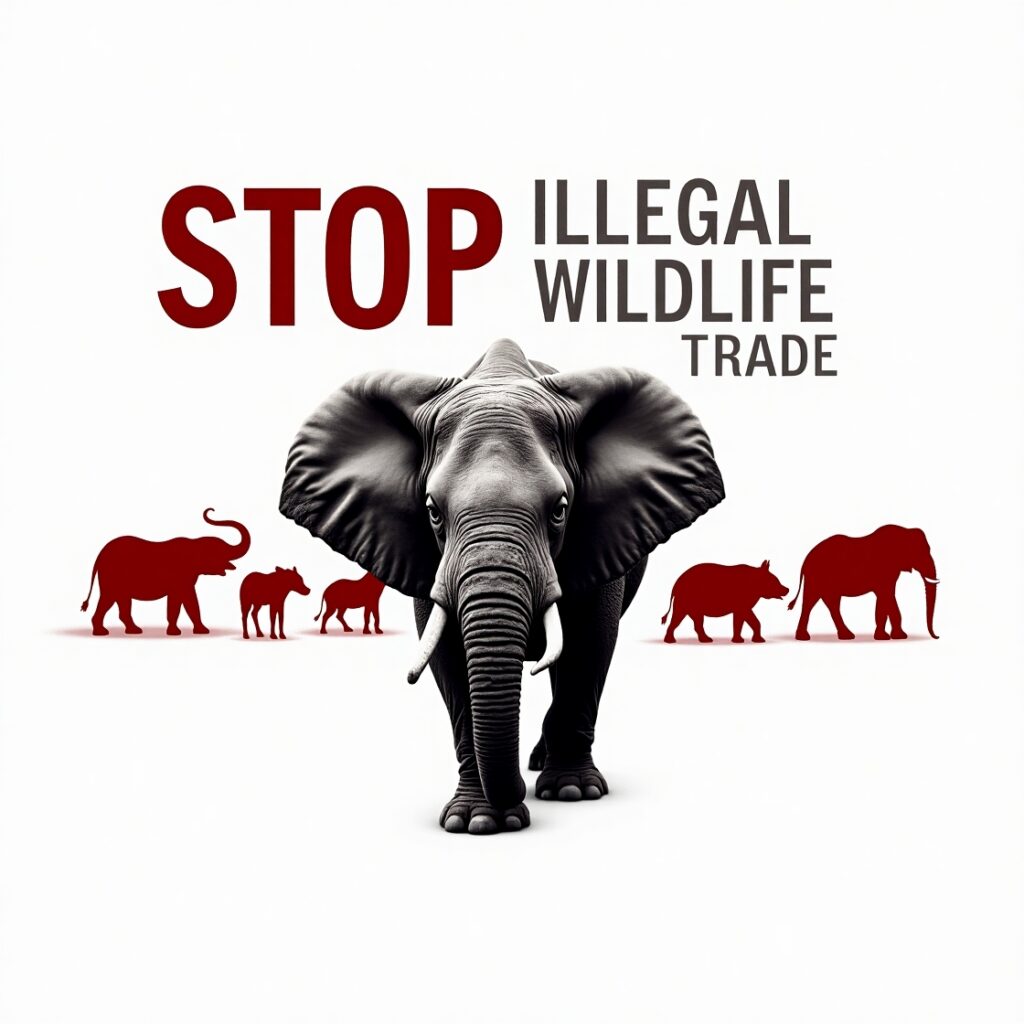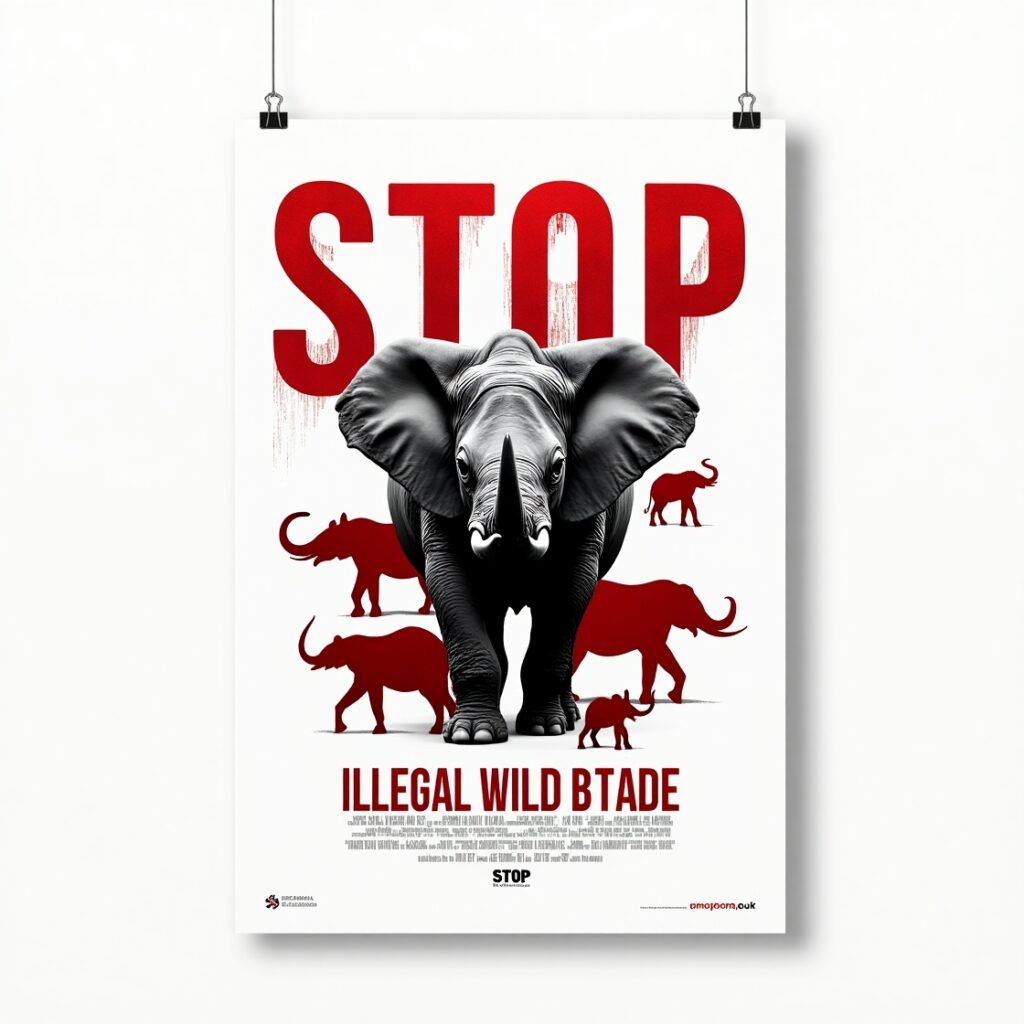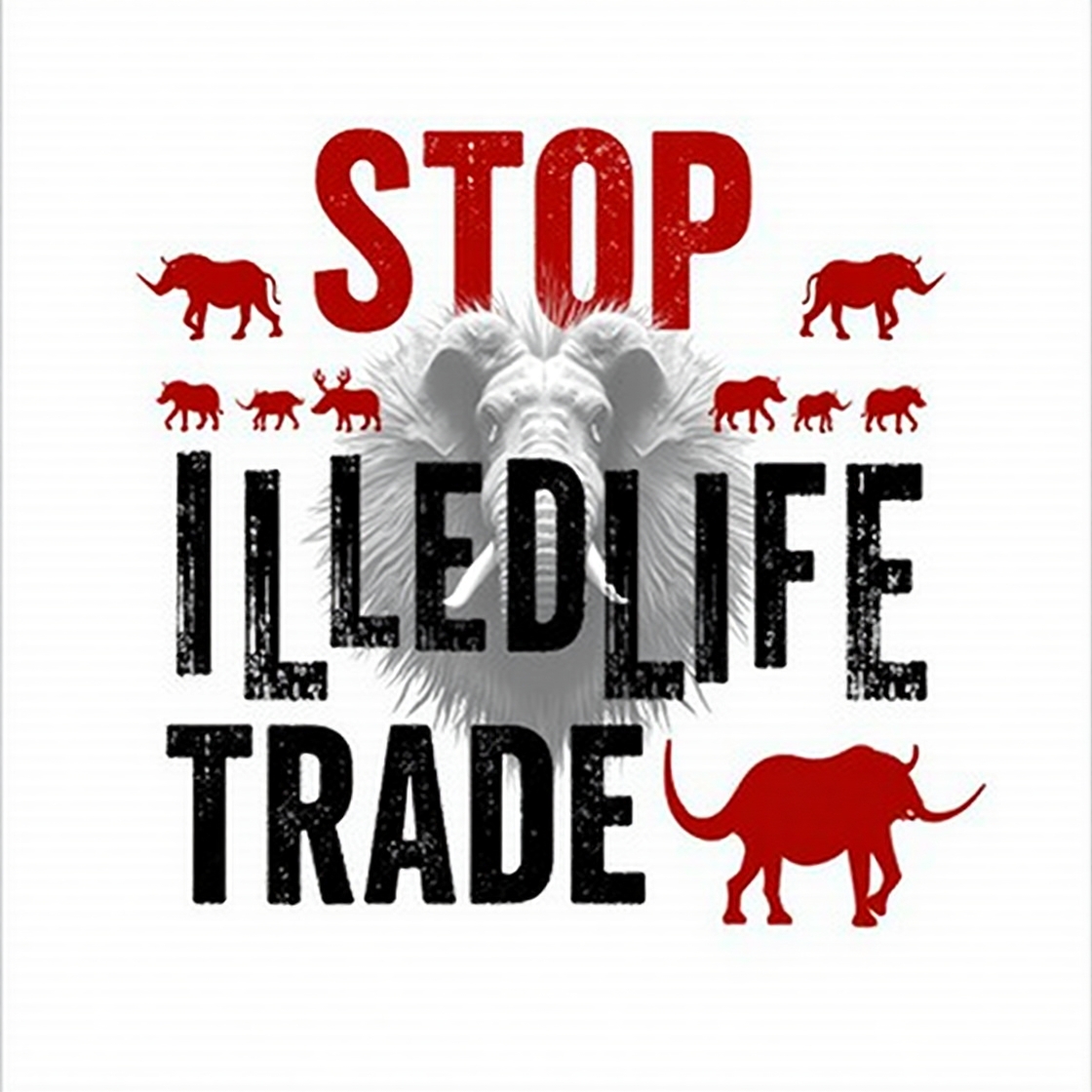The illegal wildlife trafficking is one of the most important yet least talked about problems in the world right now. Millions of animals are trafficked every year to fulfil human avarice, superstition, and luxury markets. These species include rare birds, unusual reptiles, elephant ivory, and tiger bones. This unlawful business, which is thought to be worth up to $20 billion a year, is one of the four biggest illegal businesses in the world, along with drugs, weapons, and human trafficking.
But the illicit wildlife trade is different from other black markets because it doesn’t simply hurt individuals; it’s also pushing many species to extinction and throwing entire ecosystems out of balance. We’ll look at the main issues surrounding this developing problem in this post and explain why action needs to be taken right away.

What is the trade in wildlife that is against the law?
The illegal wildlife trade includes taking, moving, and selling wild plants and animals without permission. This includes living creatures, pieces of animals (such tusks, horns, and skins), and plant materials like rare orchids or rosewood. People typically buy these things as trophies, for traditional medicine, for exotic pets, or for luxury items.
The trade is done through complex networks that connect countries and continents. Criminal groups take advantage of weak law enforcement, open borders, and online marketplaces to easily smuggle animals.
Elephants are one of the most affected species. Every year, poachers murder tens of thousands of elephants for their ivory tusks, mostly to meet demand in Asia.
Rhinos: In some regions of Asia, rhino horns are highly valued because people think they have healing powers.
Pangolins are the most trafficked mammals in the world right now. People hunt them for their scales and meat.
Tigers—There are less than 4,000 living in the wild, and people hunt them illegally for their skins, bones, and other body parts.
Exotic Birds and Reptiles: People routinely catch and sell parrots, snakes, turtles, and lizards as pets, however many of them die during shipment because of bad conditions.
Effects on the environment and the economy
The illegal trade in wildlife is very bad for the ecology and biodiversity. Many of the creatures that are hunted are already in peril, and taking them out of the wild messes up ecosystems. For instance, taking out top predators like tigers or wolves might cause prey populations to grow quickly, which can hurt plants and change habitats.
The trade hurts communities that depend on lawful wildlife tourists for their livelihoods. Poaching drives away tourists and harms ecosystems that support agricultural and water supplies, costing millions of dollars each year in countries all around Africa, Asia, and South America.

A Risk to Public Health That Isn’t Known
Illegal wildlife trade can also cause pandemics, which is probably the most scary thing. Many animals that are trafficked are kept in dirty places, which makes it more likely that they may spread disease to people. The COVID-19 outbreak, which is thought to have started at a wildlife market, showed how animal exploitation might lead to worldwide health problems.
Eating and trading wild animals has been connected to diseases like SARS, Ebola, and avian flu. Not only is illicit wildlife trade bad for the ecosystem and against the law, but it is also a public health emergency.
Worldwide Efforts to Stop Wildlife Crime
There are still efforts to stop the illegal trafficking in wildlife, but they are not easy. CITES (the Convention on International Trade in Endangered animals) is an international agreement that controls the legal trade in endangered animals. But enforcement is often poor, and corruption can make it hard to look into things.
WWF, TRAFFIC, and WildAid are just a few of the groups that are fighting to rescue animals, break up trafficking networks, and lower demand from consumers. More and more, governments are seeing that they need tighter regulations, more money for rangers, and campaigns to raise public awareness.
Some governments have made it illegal to sell particular goods in certain markets, while others have made it illegal to hunt and trade in certain goods. These efforts will only get so far without collaboration and continuous enforcement from throughout the world.
Things You Can Do
To stop the illegal trade in wildlife, people all around the world need to be aware of it and do something about it. You can accomplish a few things:
Don’t get unusual pets or animal gifts.
Help groups that work to protect the environment.
Don’t buy traditional medicines that are made from animal parts.
Tell the police about any strange behaviour you see.
Use social media and activities in your neighbourhood to get the word out.
Last Thoughts
The illegal wildlife trade is a quiet killer that hurts animals, ecosystems, economies, and even people. We need to act quickly on this issue since we are all citizens of the world. We can halt this horrible trade before it does more damage by lowering demand, enforcing regulations, and conserving animals that are at risk. It’s not just about conserving animals; it’s also about keeping our future safe.




